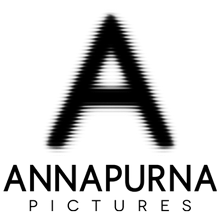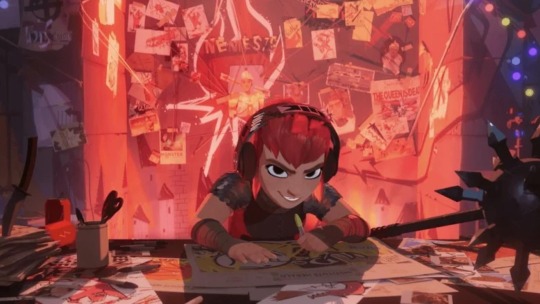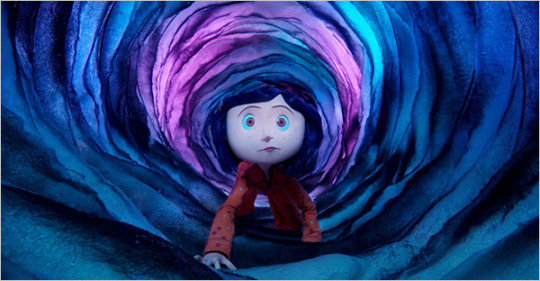#kids who Grace us with skilled artists’ work rather than their own mid acting
Text
Fuck decent acting, MY favorite genre of nepo baby is “child of Some Rich Guy who funnels their daddy’s money into innovative creative projects that otherwise wouldn’t get made,” especially if those projects are animated




#no ethical billionaires but sometimes those billionaires have kids with good taste#kids who Grace us with skilled artists’ work rather than their own mid acting#nimona#annapurna pictures#laika#laika studios#coraline#paranorman
234 notes
·
View notes
Text
20 Questions With Darren Criss: How Acting Has Helped Him Make New Music
While Darren Criss has graced our TV screens with a range of characters, from high schooler Blaine Anderson on Glee to serial killer Andrew Cunanan on The Assassination of Gianni Versace, he was last spotted just being himself, on our For You Page on TikTok. “I’m walking to rehearsal with a guitar on my back with a Trader Joe’s bag ... I did not bring an umbrella because I forgot that it was raining. I’m rocking that NYC musician life,” the Glee alum explained in the hilarious clip posted three days ago.
While Criss’ acting work has earned him acclaim and stardom, he leaned into making music during the pandemic. On Aug. 20, he dropped a new EP, Masquerade, featuring five new tracks that Criss says were inspired by the different characters Criss has embraced throughout his career. After Criss wrote songs for his musical comedy web series Royalties and Apple TV+’s animated sitcom Central Park before the pandemic struck the United States, he then used those experiences as a precursor to his new EP. As Criss continues to promote his new music, he answered 20 of Billboard's questions – giving us a peek into how his new EP came together, and how growing up in San Fransisco shaped him as an actor, singer and all-around artist.
1. What inspired your latest project, Masquerade?
Although I would have preferred that it come at a far less grim cost, I finally had the time. Before the pandemic, I had written 10 new songs for my show Royalties -- along with an original song for Disney and another for Apple’s Central Park. These were all assignments in which I was writing for a certain scenario and character. Go figure. It was the most music I had ever written in a calendar year. This really emboldened me to rethink how I made my own music— to start putting a focus on “character creation” in my songs, rather than personal reflection. The latter was not proving to be as productive. The alchemy of having this time and having set a new intention with my own songwriting and producing made me put on a few of my favorite masques and throw myself a Masquerade.
2. How do you think your background as an actor complements your music?
They are one and the same to me. I treat acting roles like musical pieces— dialogue is like scoring a melody; there’s pace, dynamics, cadence, tone. Physical characterization is like producing -- zeroing in on the bass line, deciding on the kick pattern. Vocal characterization is like choosing the right sonic experience, choosing the most effective snare sound, and mixing the high end or low end. It goes without saying that it works in the complete opposite direction. Making each song is taking on a different role literally and employing the use of different masques to maximize the effectiveness of the particular story being told.
3. On Instagram you wrote that “Masquerade is a small collection of the variety of musical masques that have always inspired me.” Which track do you identify with most in your real life?
Everybody absorbs songs differently. Some key into the lyrics, some into the melody, some the production, some into vocal performance. When I listen to songs, I consider all of their value on totally different scales. So it’s hard to say if there’s any track I “identify” with more than any others, since I -- by nature -- identify with all of them. I think I just identify with certain aspects more than others. If it helps for a more interesting answer, I will say I enjoy the slightly more classical, playful -- dare I say -- more Broadway-leaning wordplay of “Walk of Shame,” but that’s just talking about lyricism. I enjoy the attitude of “F*kn Around,” the batsh--t musicality of “I Can’t Dance,” the relentless grooves of “Let’s” and “For A Night Like This.” All have different ingredients I really enjoy having an excuse to dive into.
4. What’s the first piece of music that you bought for yourself, and what was the medium?
Beatles audio cassettes: “Help” and “Hard Day’s Night.” I just listened on repeat on a tape-playing Walkman until my brother and I got a stereo for our room with a CD player in it, which was when I just bought the same two albums again, but this time as compact discs.
5. What was the first concert you saw?It’s hard to say, because my parents took us to a lot of classical concerts when we were small. But I guess this question usually refers to what was the first concert you went to on your own volition, and that my friend, was definitely Warped Tour ’01. My brother and I went on our own— two teenagers going to their first music festival, in the golden age of that particular genre and culture. It was f--king incredible.
6. What did your parents do for a living when you were a kid?
My dad was in private banking and advised really, really wealthy people on how to handle their money. My mom was, by choice, a stay-at-home mom, but in reality, she was my dad’s consigliere. They discussed absolutely everything together. They were a real team, and I saw that every single day in the house. They both had a background in finance (That’s how they met in the first place.) and were incredibly skilled at all the hardcore adulting things that I absolutely suck at. They were total finance wizards together. So of course, instead of becoming an accountant, I picked up playing the guitar and ran as far I could with it. Luckily, they were all about it.
7. What was your favorite homecooked meal growing up?
My dad was an incredible chef. For special occasions, I’d request his crab cakes. They were unreal. I’ve never had a crab cake anywhere in the world that was good as my dad’s.
8. Who made you realize you could be an artist full-time?
I don’t know if I’ve actually realized that yet.
9. What’s at the top of your professional bucket list?
The specifics change every day, but the core idea at the top is to continue being consistently inconsistent with my choices, and to keep getting audiences to constantly reconsider their consideration of me. But I mean, sure, what performer doesn’t want to play Coachella? What songwriter doesn’t want to have Adele sing one of their songs? What actor doesn’t want to be in a Wes Anderson film?
10. How did your hometown/city shape who you are?
San Francisco. I mean, come on. I was really lucky. The older I get, the more grateful I am for just being born and raised there. It’s an incredibly diverse, culturally rich, colorful, inclusive, vibrant city. By the time I was born, it had served as a beacon for millions of creative, out-of-the-box thinkers to gather and thrive. I grew up around that. The combination of that with having parents, who were unbelievably supportive of the arts themselves, laid an incredibly fortunate foundation to consider the life of an artist as a legitimately viable option. It’s a foundation that I am supremely aware is not the case for millions of young artists around the world. I was absurdly lucky.
11. What’s the last song you listened to?
I mean probably one of mine, but not by choice. I know, lame. But I’m promoting a new EP, what’d you expect? But if you wanna know what I’ve been listening to, as far as new s--t is concerned: a lot of Lizzy McAlpine, Remi Wolf, and Charlie Burg.
12. If you could see any artist in concert, dead or alive, who would it be?
The Beatles is an obvious "yeah, duh." Sammy Davis, Mel Tormé, or of course, Nat King Cole. I would’ve loved to see Howard Ashman give a lecture on his creative process and his body of work.
13. What’s the wildest thing you’ve seen happen in the crowd of one of your sets?
I feel like just having a crowd at all, at any one of my sets, is pretty wild enough.
14. What’s your karaoke go-to?
The real answer to this I’ll write into a book one day, because I have a lot to say about karaoke etiquette. I have two options here: I can either name a song that I like to sing for me, for fun, or I can name a song that really gets the group going. The answer depends on what kind of karaoke night we’re dealing with here. So I will say, after I’ve selected a ton of songs that services a decent enough party vibe for everyone else, then I would do one for me, and that would be the Beatles’ “Oh! Darling.”
15. What’s one thing your most devoted fans don’t know about you?
What I have up my sleeve.
16. What TV show did you binge-watch over the past year?
Dave is a stroke of genius. There are episodes that I believe are bona fide masterpieces. Also, My Brilliant Friend is a masterclass in cinematic television.
17. What movie, or song, always makes you cry?
It’s A Wonderful Life.
18. What’s one piece of advice you would give to your younger self?
Get used to sharing everything about yourself and your life now, or more astutely, to the idea that you don’t necessarily get to control how your life is shared. I know it’s not really your thing, but you’re gonna have to get used to it, so start building up those calluses now. And don’t worry, all the stuff you love now will be cool again in your mid-thirties, so keep some of those clothes because you’ll be a full-blown fashion icon if you just keep wearing exactly what you’re wearing. Oh nd also, put money into Apple and Facebook.
19. What new hobby did you take on in the last year?
I’ve always been a linguaphile. My idea of leisure time is getting to study or review other languages. This past year, I took the time to finally dive into learning how to read, write, and speak Japanese. Other than making music, it was one of the biggest components of my 2020-2021.
20. What do you hope to accomplish or experience by the end of 2021?
I hope I get to play live shows again.
64 notes
·
View notes
Photo

📰 Super Junior Talk Their K-Pop Legacy, Songwriting & 'Lo Siento
6/27/2018
Super Junior photographed at KCON 2018 NY at the Prudential Center in Newark, New Jersey.
Back in 2009, then-13-member Korean group Super Junior became one of that year’s biggest success stories when its single “Sorry Sorry” went viral. Over the next few years, the team became one of K-pop’s most prominent performers, and gained an international following around the globe.
They were one of the Top 10 K-pop touring acts globally between 2013-16, and were the first South Korean act to focus heavily on the Chinese market, with sub-unit Super Junior-M forming in 2007 with two additional Mandarin-speaking members. Now industry seniors who focus on a variety of entertainment fields, ranging from acting to MCing to music video producing, the boy band recently saw a career renaissance with their latest single, “Lo Siento.”
youtube
A Latin / K-pop collaboration that features Dominican-American singer Leslie Grace and production duo Play-N-Skillz, the group’s April-release showed that Super Junior still has what it takes to lead K-pop's way into new markets: The single went to No. 13 on the Latin Digital Song Sales chart, the first ever Korean song to appear on a Latin music-associated Billboard chart. In an industry where, until recently, careers for idol pop acts rarely exceeded a decade, SuJu has once again reasserted their worth as one of the most impactful Korean artists internationally.
Super Junior’s career growth has chronologically been in-line with the waxing and waning of K-pop’s popularity globally: “Sorry Sorry” was one of several hits in 2009 that spurred new interest in Korean pop culture internationally, fronting Hallyu or the Korean wave, in the late ‘00s and early ‘00s. Now “Lo Siento” comes at a time when more Korean music than ever before is appearing on American charts.
“When we first debuted, this word ‘K-pop’ it wasn’t such a big phenomenon as it is now,” group leader Leeteuk (Park Jungsoo) tells Billboard ahead of their performance at KCON 2018 NY on June 23. “But when we started to get really popular with ‘Sorry Sorry,’ K-pop as a whole became such a huge sensation. We want to continue to grow as a group, so that when the public thinks ‘K-pop,’ Super Junior becomes a household name that is very much relevant to ‘K-pop.’”
youtube
The rise of "Despacito" and other Spanish-language music in the global mainstream made Super Junior and their label, SM Entertainment, believe that the time was right for a Latin pop-inspired track. Performed in Korean, Spanish, and English, "Lo Siento" is the most expansive crossover with the Latin world that K-pop has seen as of yet. "Because it’s something new, there may have been some things that weren’t perfect," reflects Leeteuk. "But as we try new things, we feel, as a group, that we’ll continue to grow and become a lot stronger."
According to Grace, who performed with Super Junior at the east coast KCON event last weekend, “Lo Siento” gave her the opportunity to, “Live firsthand the fact that music has no barriers,” and get an eye-witness look at what K-pop and its global audience is like. She performed alongside Super Junior throughout the Latin American stops of their recent Super Show 7 world tour, during which she had her own set midway through each concert.
While talking, it's clear that Grace and the six members of Super Junior at KCON -- the group’s seventh currently active member Kim Heechul was unable to attend -- have learned much from one another, despite the language barrier; during the interview, barely a sentence gets out of anyone’s mouth without Grace or a member of Super Junior commenting on one another’s response, often poking fun at one another and referencing inside jokes.
According to the six, Grace even has a favorite Super Junior song: “One More Chance,” off of last year’s Play album. Co-written by Lee Donghae, the Super Junior member cites her enthusiasm for the song as one of the motivators behind his desire to keep writing music for the group. “The members really liked this song, Leslie actually says it’s her favorite song as well, and the fans really enjoyed it, so it makes me feel like I need to keep continuing to work really hard and write more, better songs,” Lee explains.
youtube
According to Leeteuk, Super Junior feels an obligation as a veteran act to keep pushing forward with their career in new and novel ways, in order not only to remain relevant, but also to continue propelling K-pop’s growth for the next generation of younger K-pop stars. “Not much has changed since our debut days and the debut of current idols,” he said. “When we look to them, we think that we need to try harder as well, because these kids look to us and think, ‘Oh, we want to succeed like Super Junior.’ And so in order to keep that, we have to continue to succeed as a group as long as possible.”
Though all of Super Junior’s members are well in their early or mid-30s, the group has no plans of slowing down anytime soon. “Rather than it being a long time for us having been around, we think that there’s even a longer time for us to continue to perform together as a group,” says Leeteuk.
The idea of moving forward with their career while still maintaining their typical Super Junior style and exuberance radiated from the team throughout KCON 2018 NY, where they were the closers of the first night’s concert at the Prudential Center in Newark, New Jersey. With a set that incorporated a medley of their hits and their newer songs, Super Junior’s six members showed their consummate skill as performers to finish off the show in a high-energy manner that got the whole audience excited.
They may no longer be juniors anymore, but as the crowd danced and cheered along to the inspirational lyrics of concert closer “Miracle” -- the ebullient pop track opens with the declaration, “Life couldn’t get better” -- it was apparent that the 13-year-old act is very much still one of K-pop’s super stars.(c)
61 notes
·
View notes